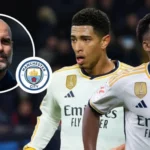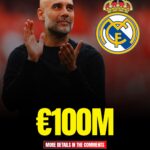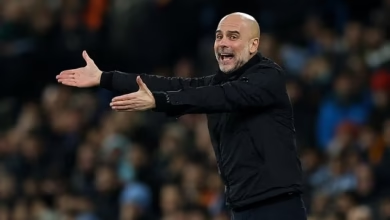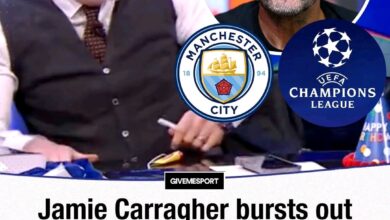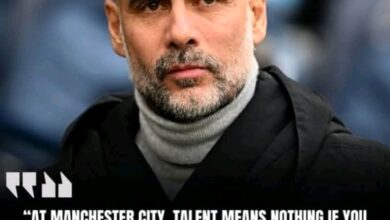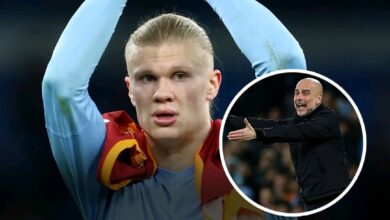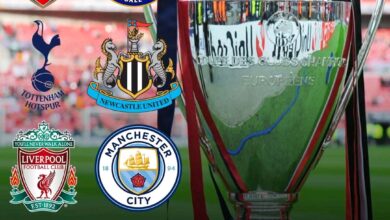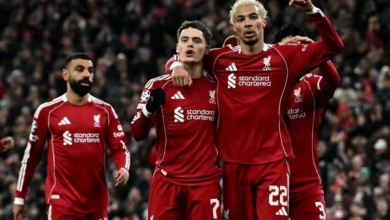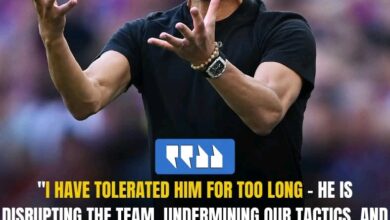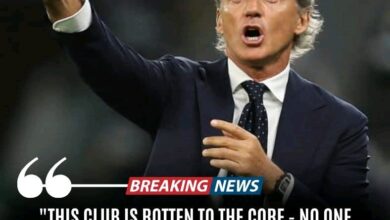‘Elegant’ Real Madrid star now desperate to sign for Man City but Premier League rules make the move difficult
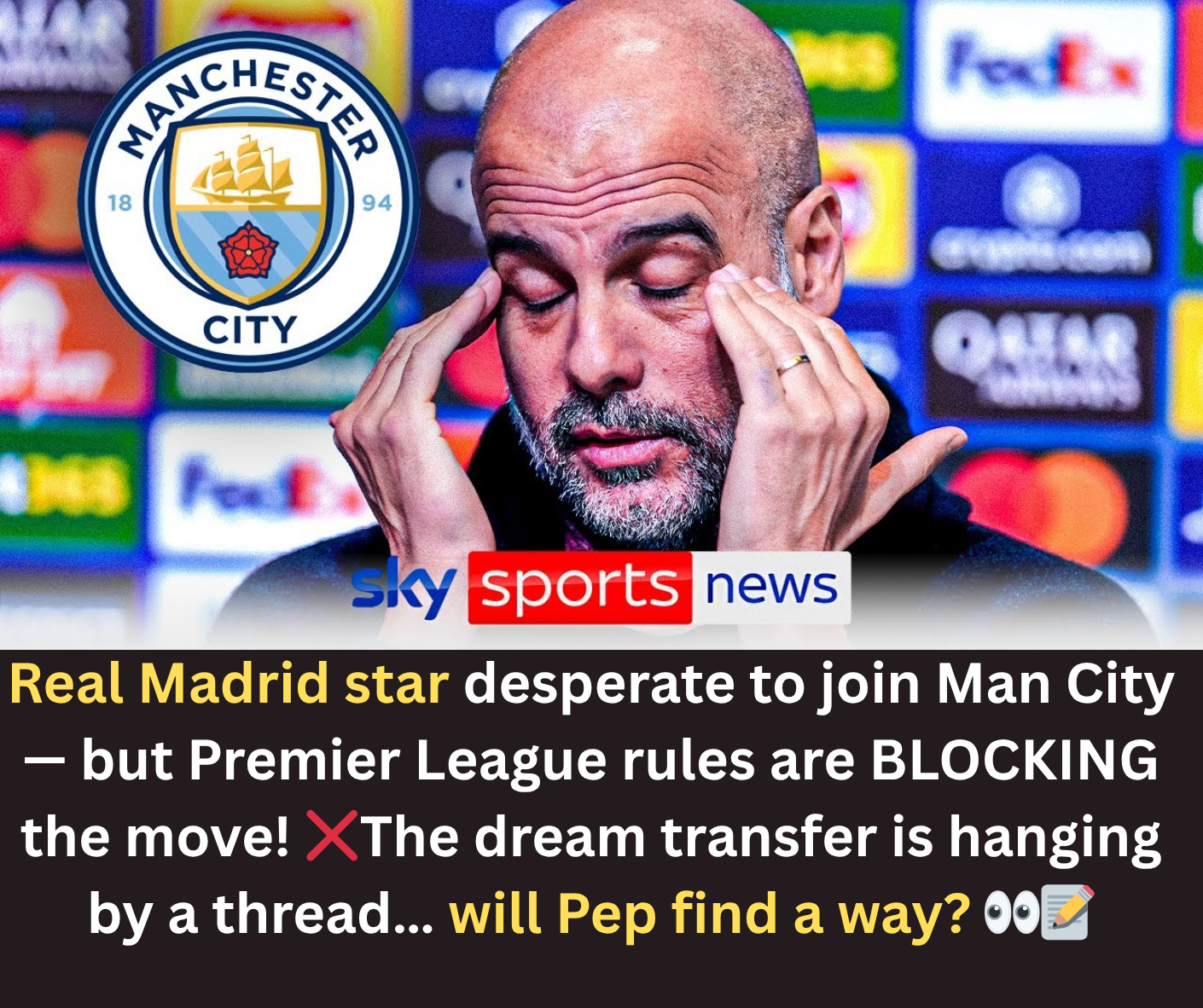
The summer transfer window of 2025 has been nothing short of remarkable for Manchester City, as Pep Guardiola and sporting director Hugo Viana work tirelessly to rebuild a squad that endured one of the most challenging seasons in recent memory. While the Citizens have already made significant moves in the market, securing the signatures of Rayan Cherki, Tijjani Reijnders, and Rayan Ait-Nouri, one particular target continues to elude their grasp due to administrative complications that highlight the complex nature of modern football regulations.
Real Madrid’s Brazilian winger Rodrygo Goes, described by Carlo Ancelotti as “elegant,” has emerged as Manchester City’s primary target to bolster their attacking options. However, the Premier League’s homegrown player rules present a significant obstacle that could derail what many consider to be a perfect match between player and club.
The Rodrygo Situation: A Player Desperate for Change
At just 24 years old, Rodrygo Goes represents everything Manchester City are looking for in their quest to return to the summit of English and European football. The Brazilian international has established himself as one of Real Madrid’s most consistent performers, contributing crucial goals and assists in some of the biggest matches across multiple competitions. His versatility across the front three, combined with his pace, technical ability, and eye for goal, makes him an ideal candidate to fill the void left by Jack Grealish’s anticipated departure.
Sources close to the player suggest that Rodrygo is genuinely desperate to make the move to the Etihad Stadium, despite interest from other Premier League clubs, most notably Arsenal. The Brazilian’s desire to work under Pep Guardiola stems from his admiration for the Catalan coach’s tactical philosophy and his proven track record of developing attacking players into world-class performers.
Real Madrid have reportedly set Rodrygo’s valuation at £77 million, a figure that reflects both his current ability and future potential. For a player who has already won multiple Champions League titles and established himself in the Brazilian national team setup, this price point represents reasonable value in today’s inflated transfer market. Manchester City, flush with resources and determined to make a statement after their disappointing 2024-25 campaign, would have little difficulty meeting this financial demand under normal circumstances.
The Homegrown Player Rule Obstacle
However, football transfers in the modern era are rarely straightforward, and Manchester City find themselves constrained by Premier League regulations that govern squad composition. The homegrown player rule, implemented to encourage the development of local talent and maintain a connection between clubs and their communities, stipulates that Premier League clubs can register a maximum of 17 non-homegrown players in their 25-man squad.
A homegrown player is defined as one who has been registered with a club affiliated with the English Football Association or the Football Association of Wales for at least three seasons (or 36 months) before their 21st birthday. This classification is irrespective of the player’s nationality, meaning that foreign players can qualify as homegrown if they meet the residency requirements during their formative years.
Rodrygo, despite his undeniable talent, does not meet these criteria. Having developed his skills at Santos in Brazil before making his move to Real Madrid at the age of 18, he lacks the English or Welsh football education necessary to be classified as homegrown. This technicality, while seemingly minor, has massive implications for Manchester City’s transfer strategy.
City’s Current Squad Composition Challenge
An analysis of Manchester City’s current roster reveals the extent of their predicament. The club has already reached the maximum limit of 17 non-homegrown players, leaving no room for additional signings unless departures occur. The current list of non-homegrown players includes:
Goalkeepers: Ederson Moraes and Stefan Ortega provide City with two experienced options between the posts, both classified as non-homegrown due to their Brazilian and German origins respectively.
Defenders: The defensive contingent includes Ruben Dias (Portugal), Manuel Akanji (Switzerland), Josko Gvardiol (Croatia), and new signing Rayan Ait-Nouri (Morocco/France). This group represents some of the finest defensive talent in world football but contributes significantly to the non-homegrown quota.
Midfielders: The engine room features Matheus Nunes (Portugal), Rodri (Spain), Nico Gonzalez (Argentina), Mateo Kovacic (Croatia), new signings Rayan Cherki (France) and Tijjani Reijnders (Netherlands), plus the returning Ilkay Gundogan (Germany). This star-studded midfield reflects City’s global recruitment strategy but exacerbates their homegrown player shortage.
Forwards: The attacking department includes Jeremy Doku (Belgium), Bernardo Silva (Portugal), Omar Marmoush (Egypt), and Erling Haaland (Norway). Each of these players brings unique qualities to City’s attack but none qualify as homegrown.
This squad composition, while undoubtedly talented, illustrates the challenge facing Hugo Viana and the recruitment team. Every potential signing must be weighed against its impact on squad registration rules, creating a complex balancing act between sporting ambition and regulatory compliance.
The Strategic Implications of Squad Limitations
The homegrown player rule serves its intended purpose of encouraging clubs to invest in local talent development, but it also creates unintended consequences for clubs operating at the highest level of the transfer market. Manchester City’s situation exemplifies how these regulations can limit a club’s ability to strengthen their squad, regardless of their financial resources or sporting ambitions.
For Pep Guardiola, whose tactical philosophy relies heavily on having multiple options for different game situations, these limitations present a significant challenge. The Spanish coach has built his reputation on his ability to rotate his squad effectively, utilizing different player profiles to exploit opponents’ weaknesses. The inability to sign Rodrygo, purely due to administrative restrictions rather than sporting or financial considerations, represents a frustrating obstacle to his strategic planning.
The Gundogan Solution: A Potential Way Forward
Despite these challenges, Manchester City may have identified a solution that could facilitate Rodrygo’s arrival. Ilkay Gundogan, the German midfielder who returned to the Etihad Stadium in the summer of 2024, has reportedly agreed to personal terms with Turkish giants Galatasaray. This development could prove crucial in creating the necessary squad space for Rodrygo’s registration.
Gundogan’s potential departure would be significant for multiple reasons. The 34-year-old midfielder brings vast experience and leadership qualities to City’s squad, having previously enjoyed tremendous success during his initial stint at the club. His technical ability, vision, and knack for scoring crucial goals made him an invaluable asset during City’s most successful period under Guardiola.
However, football is ultimately a business, and difficult decisions must sometimes be made to facilitate long-term planning. Gundogan’s age profile suggests that his best years may be behind him, while Rodrygo represents a long-term investment in City’s future. The Brazilian’s youth, combined with his proven ability at the highest level, makes him an attractive proposition for a club looking to rebuild and challenge for major honors once again.
The prospect of Gundogan joining Galatasaray also makes sense from the player’s perspective. At 34, the German midfielder may be seeking a new challenge in a different environment, where he can continue to play at a high level while potentially taking on a more prominent leadership role. Turkish football’s growing profile and Galatasaray’s ambitious project could provide the perfect platform for the next chapter of his career.
The Broader Context: City’s Rebuilding Project
The Rodrygo transfer saga must be viewed within the broader context of Manchester City’s rebuilding efforts following their disappointing 2024-25 campaign. Pep Guardiola, widely regarded as one of the greatest coaches in football history, endured arguably the most challenging season of his illustrious career. The team’s struggles highlighted the need for fresh blood and renewed energy within the squad.
Hugo Viana, tasked with overseeing City’s transfer strategy, faces the enormous pressure of delivering signings that can restore the club to its former glory. The acquisitions of Cherki, Reijnders, and Ait-Nouri demonstrate City’s commitment to investing in young, talented players who can contribute immediately while also developing into world-class performers over time.
Rodrygo would fit perfectly into this strategy. At 24, he combines youth with experience, having already proven himself in the most demanding environments. His track record in Champions League knockout matches, where he has scored crucial goals for Real Madrid, demonstrates his ability to perform when the stakes are highest. These are exactly the type of qualities that Guardiola values in his players and that City need to rediscover their winning mentality.
The Financial Implications
While the £77 million valuation placed on Rodrygo by Real Madrid represents a significant investment, it must be considered within the context of the modern transfer market. Premier League clubs regularly spend similar amounts on players with far less proven track records, making Rodrygo’s price tag relatively reasonable for a player of his caliber.
Manchester City’s financial position remains strong despite recent challenges, and the club has demonstrated its willingness to invest heavily in the right players. The potential sale of Jack Grealish, along with other departures, could help offset the cost of Rodrygo’s acquisition while also addressing the homegrown player quota issues.
From Real Madrid’s perspective, the sale of Rodrygo could provide them with valuable funds to pursue their own transfer targets. The Spanish giants have never been reluctant to sell players when the right offer arrives, and £77 million would represent excellent value for a player who, despite his undoubted quality, has sometimes struggled to secure a guaranteed starting position in their star-studded lineup.
The Tactical Fit: Why Rodrygo Makes Sense for City
From a purely footballing perspective, Rodrygo represents an ideal fit for Guardiola’s tactical system. The Brazilian’s ability to play across multiple positions in the front three provides the versatility that the Spanish coach prizes above all else. His pace and direct running would add a different dimension to City’s attack, particularly in transition situations where quick breaks can prove decisive.
Rodrygo’s technical ability on the ball aligns perfectly with City’s possession-based philosophy. His first touch, close control, and ability to operate in tight spaces would allow him to thrive in Guardiola’s intricate passing patterns. Additionally, his finishing ability and composure in front of goal address one of City’s key weaknesses from the previous season – converting chances into goals.
The Brazilian’s experience in high-pressure situations would also prove invaluable. Having won multiple Champions League titles with Real Madrid, including contributions in crucial matches, Rodrygo understands what it takes to succeed at the highest level. This mentality and experience could prove contagious among City’s younger players and help restore the winning culture that had begun to erode.
The Competition Factor: Arsenal’s Interest
Manchester City’s pursuit of Rodrygo is complicated not only by regulatory issues but also by competition from other Premier League clubs, most notably Arsenal. The Gunners have reportedly shown strong interest in the Brazilian and may be better positioned to complete a deal due to their own squad composition and homegrown player situation.
Arsenal’s interest adds urgency to City’s pursuit and highlights the importance of resolving the squad registration issues quickly. In modern football, transfer windows move at breakneck speed, and clubs that hesitate often find themselves missing out on their primary targets. If City cannot create the necessary space for Rodrygo’s registration soon, they risk losing him to a direct rival for Champions League qualification and domestic honors.
The prospect of Rodrygo joining Arsenal would represent a significant blow to City’s rebuild plans and could potentially strengthen a direct competitor. This dynamic adds pressure on Hugo Viana and the City hierarchy to find creative solutions to their squad composition challenges.
Looking Ahead: The Implications of Success or Failure
The outcome of Manchester City’s pursuit of Rodrygo will have implications that extend far beyond a single transfer. Success in securing his signature would demonstrate the club’s ability to navigate complex regulatory environments while continuing to attract world-class talent. It would also provide Guardiola with a key piece in his tactical puzzle and signal City’s serious intent to return to the top of English and European football.
Failure to complete the deal, particularly if it results in Rodrygo joining a rival club, could be seen as a significant setback in City’s rebuilding efforts. It would highlight the limitations imposed by squad registration rules and potentially force the club to reconsider its recruitment strategy moving forward.
Conclusion: A Transfer Saga That Defines Modern Football
The Manchester City-Rodrygo transfer saga encapsulates many of the complexities that define modern football. It demonstrates how regulatory frameworks designed to promote certain values can sometimes conflict with sporting ambitions, creating situations where talented players and interested clubs cannot easily come together.
The resolution of this situation will require careful planning, strategic thinking, and perhaps a degree of compromise from all parties involved. Whether it results in Rodrygo donning the sky blue of Manchester City or remaining in the white of Real Madrid, the story serves as a fascinating case study in the intersection of sporting ambition, financial power, and regulatory compliance that characterizes elite football in 2025.
For Manchester City fans, the hope remains that Hugo Viana can orchestrate the necessary moves to make room for Rodrygo’s arrival. The Brazilian’s talent and ambition make him an ideal candidate to help restore the club to its former glory, but first, the complex web of modern football regulations must be successfully navigated. Only time will tell whether this elegant solution can be found for the elegant player that City so desperately want to sign.


